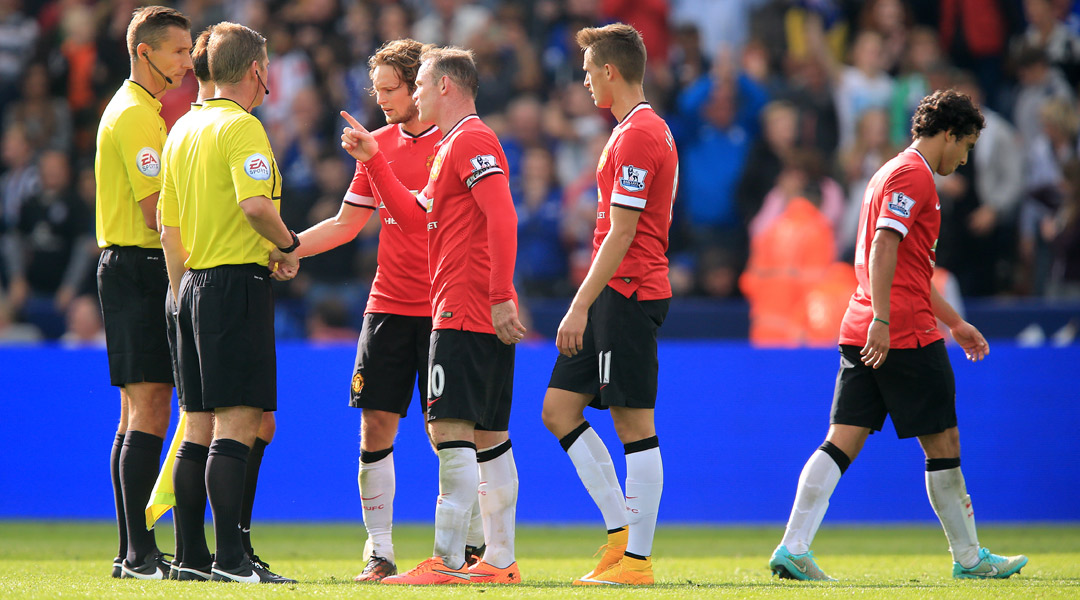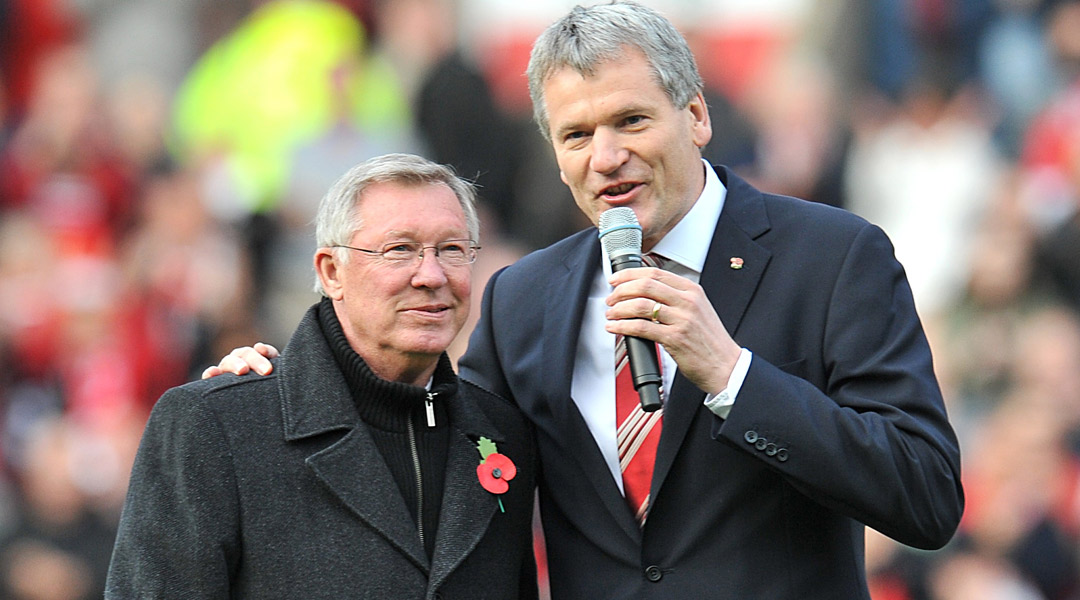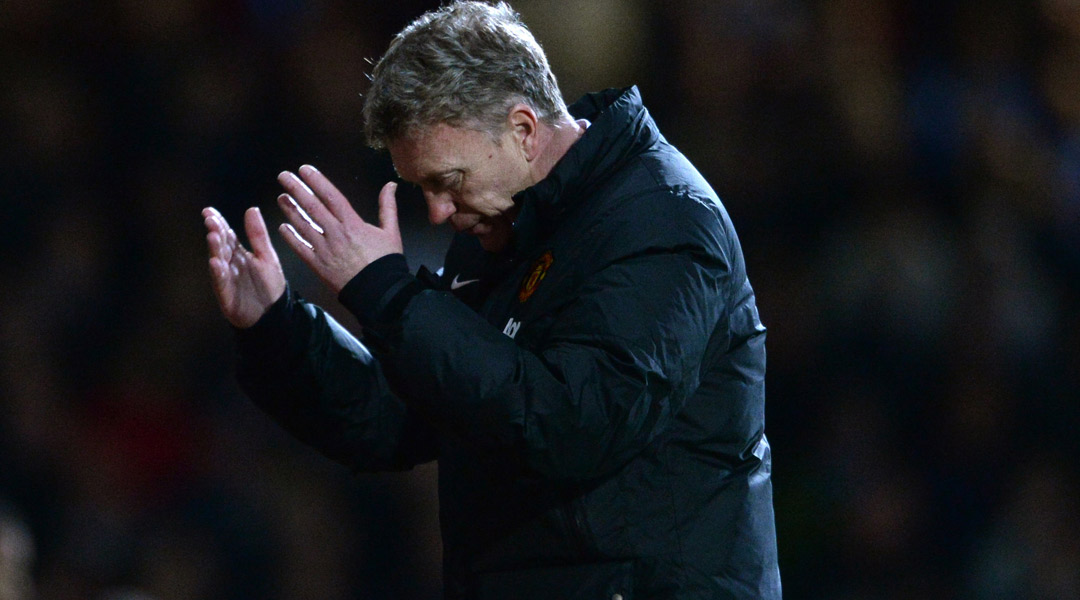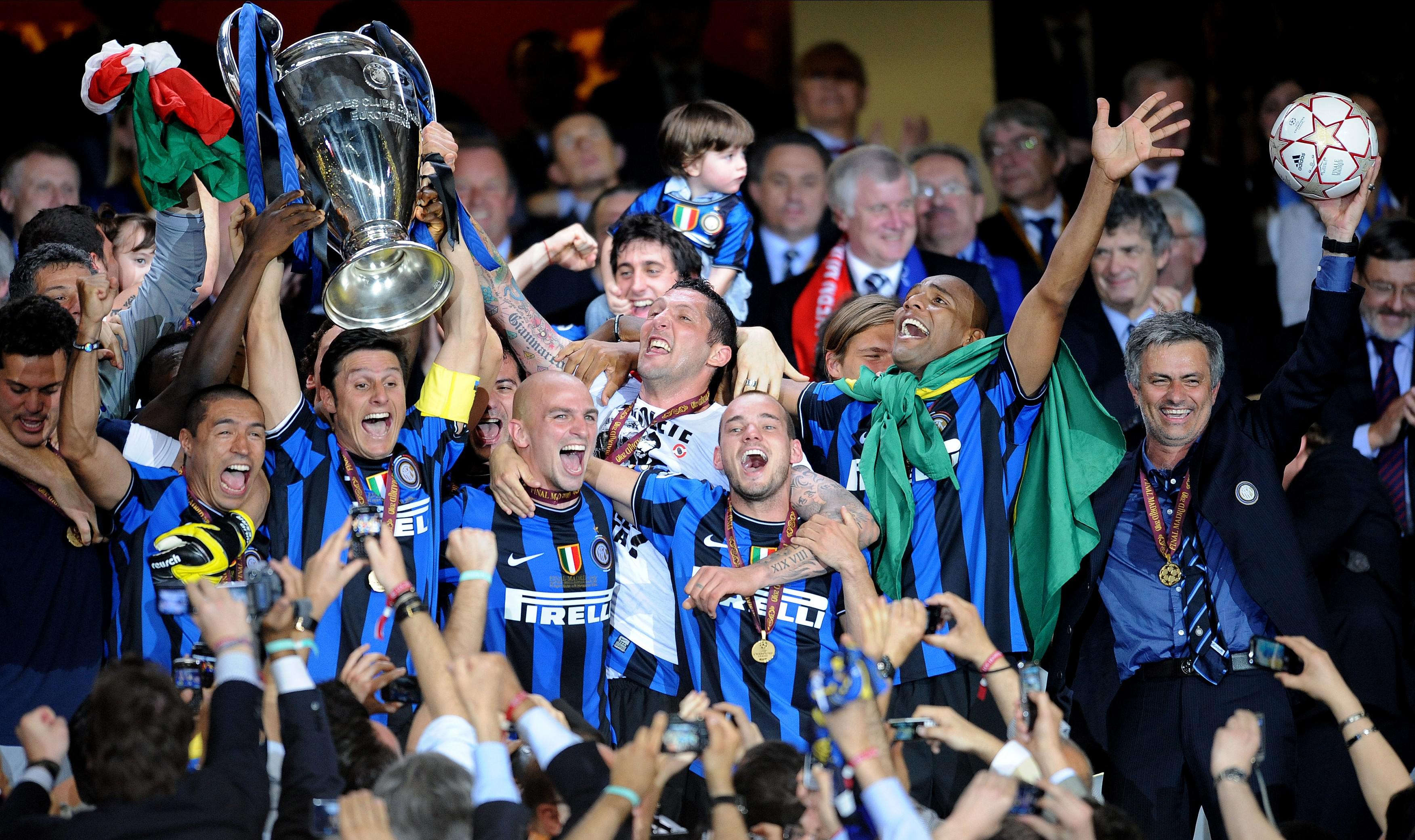How United became the 'typical' team in Manchester – and why the derby will never be the same
As the city prepares for a derby nobody can afford to lose, Greg Johnson looks at how 'noisy neighbours' City stole a march on their old tormentors...

Manchester's two clubs have long been separated by something more than the contents of their trophy cabinets. Though both have reputations for doing things the hard way, Manchester City have endured a history of being the ultimate specialists in self-destruction, finding new ways to stumble. Bad runs of luck don't cover it. They were the first team to both score and concede more than 100 goals in a single season back in 1957/58, and hold the unenviable status of being the only reigning top-flight champions to be relegated; they went down in 1938, a year after winning the First Division for the very first time.
More recently, a penalty box full of balloons defeated them in 2008, and on the last day of the season in 1996 they decided to run the clock down against Liverpool without realising they needed to score to stay up.
Needless to say, City's folklore is rich with tales of implosion in farcical circumstances. For many of their fans, this constant ability to undermine themselves became part of their identity. They were “Typical City”: a club fated with the killer combination of perpetual incompetence and faultless comic timing.
Kick in the Pollocks
The contrast in attitude and fortunes between them and their cross-town rivals couldn't have been greater in the 1990s. Manchester United took to the Premier League era excellently; under Sir Alex Ferguson, the red half of the city enjoyed an unprecedented era of domestic dominance.
Meanwhile, City slipped to a historic low in the third division, undone en route by a bizarre own goal from Jamie Pollock against relegation rivals QPR.
R's fans later voted the midfielder “the most influential man of the past 2,000 years” for saving their team's Division Two status, while condemning his own side to relegation. Jesus came second.
Get FourFourTwo Newsletter
The best features, fun and footballing quizzes, straight to your inbox every week.
Even the manner in which they won the Premier League for the first time in 2012 was haphazard. The pedigree of individuals like Sergio Aguero may have finally seen them over the line, and in fittingly dramatic fashion, but the Argentine's title-winning goal at the Etihad should never have been necessary.
City allowed a five-point lead at the top of the table to morph into an eight-point deficit behind United by April. Eventually they managed to turn it around, inspired by Carlos Tevez, who returned after spending much of the season absent without leave on an absurd and impromptu golfing holiday.
The following season, key players seemed to lose interest, the team lost its intensity and manager Roberto Mancini appeared oblivious as to how he should develop the squad and fix the problems at hand.
Mario Balotelli was sold in January after one too many training ground bust-ups and bib malfunctions, and Bobby Manc was sacked at the end of a trophyless season that saw Wigan Athletic pip City to the FA Cup.
Boardroom bumbling
Yet perhaps that title comeback in 2012 did mark a shift between the two clubs. After all, over the last 18 months, the dynamic has threatened to flip around and switch which of the Manchester teams are associated with calamity and competence. Having lost more than just their fear factor after the retirement of Fergie, are United now at risk of becoming the city's new “typical” team?
The departure of Sir Alex at the same time as former chief executive David Gill set in motion a chain of events that has seen the Old Trafford club miss out on Champions League football for the first time in the Premier League era, the coming and going of David Moyes, and various other high-profile gaffes.
In that time City have collected another league title under Manuel Pellegrini and shaken off much of the ineptitude that previously lingered. Off the pitch, Txiki Begiristain and Ferran Soriano have ushered in a new age of professionalism in place of former CEO and serial blunderer Garry Cook, who resigned in 2011 after inappropriate comments in an email about Nedum Onuoha's sick mother.

The two former Barcelona administrators have since set about pushing on with Sheikh Mansour's plans to build a global empire of affiliate clubs, and finish construction of the Etihad Campus – City's new £200 million training complex. It's all very slick, cutting-edge and impressive, especially considering how, in the past, it seemed that City wouldn't even be able to get it right with a super rich benefactor.
Previously, the club was owned by Thaksin 'Frank' Shinawatra, who in 2008 was one of the most problematic sugar daddies in the game.
Given the level of debt that the Glazer family's takeover saddled upon the red half of Manchester, though, it could be argued that from some angles United are now the club with the inferior landlords.
And rather than looking like the next David Gill, chief executive Ed Woodward has all too often sounded like the new Garry Cook. His naïve boasts about transfer funds and excited announcements about social media numbers have only handed would-be comedians a string of easy punchlines over the past two seasons.
In the transfer market – especially during Moyes' tenure – he appeared hesitant and indecisive. As his attempts to lure Cesc Fabregas fizzled out last summer, City were out putting a firm and well-thought out recruitment plan into action to arm Pellegrini with the players he wanted and needed. Less panic buys; more strategy. Less official noodle partners; more business on the pitch.

As for Moyes' tactics, media comments – aspiring to rivals and making things difficult for Alan Pardew's Newcastle – and the fan-funded plane that flew overhead during his shambling spell, the less said the better.
Louis van Gaal's time in charge hasn't been without slapstick moments either. Big reputations and an even bigger budget have been thrown at helping the Dutchman heave United back into Europe, but they have still faltered. Defeats to MK Dons and Leicester were proof success would not return overnight.
Even the injuries that have robbed Van Gaal of most of his first-team players seem to have occurred with a knowing wink to the scriptwriters; Phil Jones managing to hurt himself and those around him in an act of training ground recklessness.
Levelling the field
Of course, these teething problems could soon be put right, not least with a positive result against City in the first Manchester derby of the season. And perhaps once United are back on a more even keel, the cracks on the blue side of the city may well show through.
Arguably they already have this season; Sheikh Mansour's club haven't quite completed their transformation into infallible silverware monsters.
There's still issues like Yaya Toure's birthday cake, their continued ineptness in the Champions League, the poor atmosphere and attendances on European nights at the 'Emptyhad', and the worryingly familiar and flat performances that have crept back into their second attempt at a title defence.
Regardless, things will never be the same again in Manchester. City look well set up for the long term with their stadium expansion plans and newly opened training campus. United, meanwhile, have finally given in to the pressures of the super club era and now pay a premium for the world's finest footballers.
It should add up to an even greater spectacle when the two sides meet, but it remains to be seen what the typical norm will be from here on in.
SEE ALSO Get your Manchester derby fix with even more features
